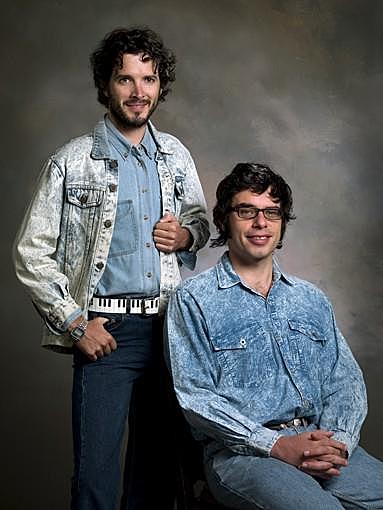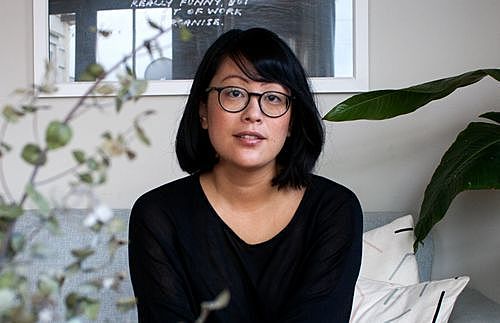Pseudointellectual Chutzpah
The University of Oxford’s approach to appointing its Professor of Poetry totally fascinates me. Rather than going through a rigorous series of panels and interviews, the position is instead filled through an election that all graduates and academics are invited to vote in.
Last year’s elections were rife with scandal: Ruth Padel - incidentally, the first female to have filled the position and the great-great granddaughter of Darwin - won after her leading opponent Derek Walcott withdrew from the race following a smear campaign.
Around 100 Oxford academics, mostly women, were sent a dossier detailing allegations of sexual harassment made against Walcott in 1982 and 1996 when he was teaching at Harvard and Boston universities in the United States.
The extract detailed how a female student at Harvard claimed that Mr Walcott had asked her to imagine making love to him, then gave her a poor grade after she rejected his advances. The university reprimanded the poet who claimed that his teaching style was “deliberately personal and intense”.
A second allegation made by Nicole Niemi in 1996 was also highlighted; Miss Niemi sued Walcott for £500,000 after she alleged that he had propositioned her before threatening to fail her and refusing to produce her play when she turned him down. He denied the claims and they reached an out-of-court settlement.
The smear campaign split the literary establishment and left outsiders shocked that the 300-year-old poetry post, which comes up every five years, could provoke such hatred and vilification in the groves of academe.
It was later discovered that Padel had emailed a number of newspapers about Walcott’s past, and she resigned from her post nine days after being elected. While this year’s by-election has been less juicy, the vitriol from this morning has been pretty entertaining:
"With just four days to go before the results of the contest are revealed, Michael Horovitz, the Beat poet, musician and founder of the Poetry Olympics, has taken exception to a piece written by his fellow nominee Anthony Burgess’s biographer Roger Lewis"
If you read Lewis’s piece you’ll see why:
"[A]sked by several people what I thought poetry might be, I have come up with the catalogue on this page. My hope is that this range of knowledge, idiosyncrasy and emotion will win me a few votes. It is all rather out of my hands. Anyway, I hope you can see that I honour “what can be seen, what can be heard, what can be learned”, as Herakleitos put it.
The mustard yellow sand in the Plaza de Toros de la Maestranza, Seville. Though we all have to disapprove of bullfighting, we can still marvel at the 18th-century architecture – at the real setting for Carmen.
The colour of Elizabeth Taylor’s eyes.
The tilt of Garbo’s face in profile.
The bend of Chaplin’s cane.
Pinter’s pauses – not his words, only his pauses.
The Letters of Oscar Wilde."
Hay bro I think you forgot to add raindrops on roses and whiskers on kittens. Oh and bright copper kettles and warm woollen mittens. And brown paper packages tied up with string.
Anyway here’s Horovitz’s letter in The Telegraph today:
Poets at loggerheads
"SIR – Roger Lewis’s catalogue of favourite things he calls poetry (Comment, June 9) was at first sight quite intriguing, but contained few allusions to actual poetry.
Mr Lewis highlights “the colour of Elizabeth Taylor’s eyes”, “Pinter’s pauses – not his words, only his pauses” and “Sir Ralph Richardson”, as indicative of a “range of knowledge, idiosyncrasy and emotion” that he hopes will win him a few votes in the election for the Professor of Poetry at Oxford.
He also adduces these as evidence that he honours Herakleitos’s “what can be seen, what can be heard, what can be learned”. But is this claim not more emblematic of pseudointellectual chutzpah than Parnassian authority?
If Mr Lewis were to engage students with his avowedly poetic topics, the Herakleitos questions could not revealingly be addressed – Liz Taylor’s eyes being pretty inaccessible for authentic colour-checks; Pinter’s pauses, bereft of the words that frame them, definitively inaudible; and Sir Ralph Richardson per se sadly unavailable as a fount of learning.
Mr Lewis could presumably spout the hind legs off a donkey about these subjects, but how does this qualify him to follow Masefield, Auden, Graves and Heaney as the next Professor of Poetry?
Perhaps I should declare an interest, as I am another of the candidates for this job.
Michael Horovitz, London W11"

